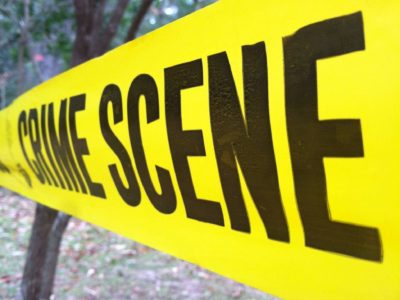Though those interested in the criminal justice system tend to study at the police academy and later become officers, many also want to understand why people commit crimes and gain further knowledge as to why people can’t break their heinous habits. Pursuing criminology can help you understand the entire process from picking up criminals off of the street to putting them behind bars and the legality behind it all.
What you’ll be doing
https://www.youtube.com/watch?v=ry_1gPeuhAM
From the very beginning as a freshman, you’ll be expected to understand the basics of the criminal justice system and the entitlement of each person involved — criminals, victims, prosecutors, defendants and police officers. Be prepared to not only know the logistics of the system but dive into the biological, cultural, social and psychological factors behind criminals and their crimes such as robbery or homicide. There are certain classes devoted solely to one specific type of crime such as sexual assault or domestic violence. Other classes give you the opportunity to visit a local prison after learning about the entirety of the correctional system, including juvenile corrections, parole and probation.
Upsides
https://www.youtube.com/watch?v=SXrmta8JiZk
“One of the biggest upsides to majoring in criminology were the different areas that it showed insight on, consisting of the law enforcement (police) side of things, as well as the criminal law (lawyer) side of things. Majoring in criminology also gave me the chance to intern at a police department for 6 months which helped cement my decision on my career choice upon graduation.” – Brian Bell, B.A. from Cabrini College 2012, Radnor Township Police Department Officer
“The greatest upside in my major was meeting and networking with other students that were in the same discipline. It created a great environment to share different experiences and opinions about our major and career field. It also taught me that there are different perspectives to each subject. Criminology and criminal justice are constantly evolving and changing. While attending classes, professors make great correlations between the course study and current issues in the related core and elective classes which is a great experience.” – Andy Block, B.A. from Neumann University 2013, currently attending St. Joseph’s University for a Master’s Degree, Radnor Township Police Department Lieutenant
“I was actually an accounting major and switched to criminology in the fall semester of my junior year. I had my sights set on a federal criminal justice career and at the time the feds were hiring accounting majors right out of college without job experience. However, once I started getting into the higher level accounting classes I was struggling, but after switching to criminology my last three semesters, I was able to take all crim. classes and found them really interesting. They led me to start looking at state and local law enforcement jobs after college.” – TJ Schreiber, B.A. from West Chester University 2001, Radnor Township Police Department Detective
Downsides
“One of the things I wish could be changed [within the major] was putting more emphasis on police-based classes. Since our program was new, the curriculum was not well shaped but did have classes on both sides of the criminology spectrum. Having more police-based classes in the major would have helped me be more prepared for the police academy and the job I am currently in today as a police officer.” – Brian Bell
“For a criminology major, unless you want to be a police officer, the jobs you can get really are not that high on the pay scale. My police department put me through the police academy which is now a rarity in today’s police hiring world unless it’s a larger department.” – TJ Schreiber
“I felt I was funneled into a career in law enforcement with limited options after graduation. Don’t get me wrong, I love what I do, but after graduation I really wanted to be a detective you would see on CSI. Maybe it was my fault for not meeting with my advisor enough to clear up any delusions of grandeur. I knew I wanted to be in law enforcement, but I really didn’t know what to do after my job as a CSI operative fell through. Once I decided to become a police officer two years after graduation, it was extremely difficult and time-consuming trying to find a full time job.” – Chris Four, B.A. from West Chester University, Radnor Township Police Department Detective 2000
Career Opportunities
Because your skill set becomes so broad when studying criminology, your career options after graduation can seem endless. With a criminology degree you’ll gain experience and knowledge about the criminal justice system that can lead you into a variety of fields including education, social services, law enforcement, the judiciary system or business. Don’t automatically assume that just because you’re studying the legal system of our country, your only post-graduation option is manning the streets as a police officer.
1. Criminologist
Analyzes data and statistics dealing with crimes, criminals’ behaviors and their impacts on society
2. Forensic Scientist
Collects evidence of a crime through scientific methods and techniques and presents it in a court of law
3. FBI Agent
Investigates federal crimes outside of any state jurisdiction that fall into the hands of the government
4. Detective/Criminal Investigator
Provides evidence for courts after possibly taking part in an arrest, interviewing suspects and witnesses and collecting data either at the scene or through records
5. Criminal/Forensic Psychologist
Measures the mental health of a criminal after a crime is committed and often testifies in court



















